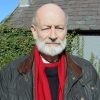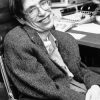What Is Time?
Exploring the mysteries of time, we shall question what it means to exist in time, and ask whether time is another dimension, like the three dimensions of space. According to Einstein, there is no such thing as absolute time. So what do we mean by the passage of time, the direction of time? Can time be recaptured, replayed, or is all time unredeemable? Is time travel possible? Our speakers will also discuss whether time as described by the theory of relativity squares with time as experienced by you and me. How exactly do we make sense of “now”, the past and future events, and the idea of eternity? How can we explain the relationship between objective and subjective time, time and causation, the irruption of subjectivity and intentionality into a material universe driven by universal laws?

Raymond Tallis will give a 15-minute opening provocation drawing on his new book Of Time and Lamentation: Reflections on Transience, which seeks to reconcile scientific and humanistic views of humanity by putting human consciousness at the heart of time. Then Guido D’Amico and Norman Sieroka shall each give five-minute replies, before Angus Kennedy opens up the discussion and invites the audience to engage.
Recommended reading:
-
Of Time and Lamentation Reflections on Transience
Raymond Tallis, Agenda Publishing
Time's mysteries seem to resist comprehension and what remains, once the familiar metaphors are stripped away, can stretch even the most profound philosopher. In Of Time and Lamentation, Raymond Tallis rises to this challenge and explores the nature and meaning of time and how best to understand it. The culmination of some twenty years of thinking, writing and wondering about (and within) time, it is a bold, original, and thought-provoking work. -
A Brief History of Time
Stephen Hawking
Stephen Hawking, one of the most brilliant theoretical physicists in history, wrote the modern classic A Brief History of Time to help non-scientists understand fundamental questions of physics and our existence: where did the universe come from? How and why did it begin? Will it come to an end, and if so, how?
Hawking attempts to deal with these questions (and where we might look for answers) using a minimum of technical jargon. Among the topics gracefully covered are gravity, black holes, the Big Bang, the nature of time and physicists' search for a grand unifying theory. -
A Debate Over the Physics of Time
Quanta Magazine
Einstein once described his friend Michele Besso as “the best sounding board in Europe” for scientific ideas. They attended university together in Zurich; later they were colleagues at the patent office in Bern. When Besso died in the spring of 1955, Einstein — knowing that his own time was also running out — wrote a now-famous letter to Besso’s family. “Now he has departed this strange world a little ahead of me,” Einstein wrote of his friend’s passing. “That signifies nothing. For us believing physicists, the distinction between past, present and future is only a stubbornly persistent illusion.”




